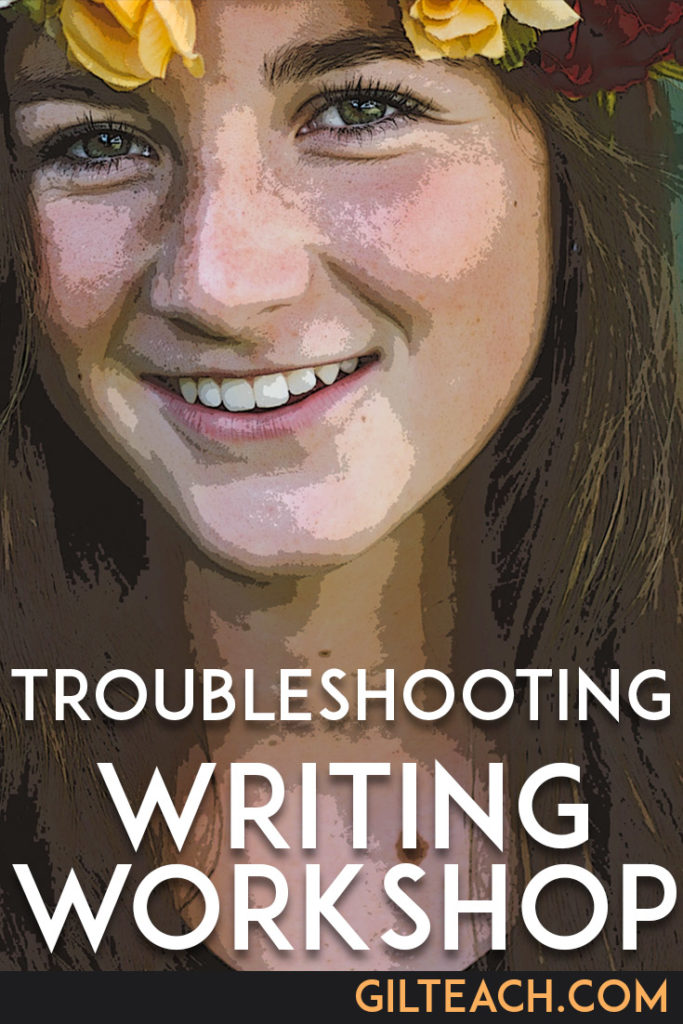Troubleshooting Writing Workshop: Three Common Questions

I have recently created a comprehensive resource to help teachers who would like to start doing writing workshop with their classes–or for teachers who’d like a little more structure and guidance with the workshops that they have already conducted in class. It includes 30 pages of handouts, how-to’s, and tips including 11 common writing workshop problems and solutions.
One of the greatest things about creating resources for other teachers is that I can help them to learn from my (many many) mistakes in the classroom. From rowdy classes to apathetic students to pitiful attempts at revision–I have gone through the same issues that many teachers likely will, and through trial and error and a lot of research, I have come up with some solutions for those problems.
Here are three common writing workshop problems and my suggestions for how to fix them.
2. My students are having a hard time coming up with topics.
Make sure to spend plenty of time on the prewriting—between reading mentor texts, brainstorming topics as a class, and having students work on freewrites, this step might take as much as a week. The more time that you spend on the prewriting, though, the easier it will be to get students writing. I also can’t overemphasize the importance of the second freewrite. When students have an extra topic, one that they can just throw away, they feel a lot more free with their writing.
Another tip is that focusing on the negative goes a long way with writers. When students can find an issue that makes them angry, or when they write about a life experience that was negative at the time, they will be much more passionate about their writing.
2. Students aren’t taking the peer conferences seriously.
Spend plenty of time modeling a peer conference before students are asked to do this on their own. Doing a mock conference with one other student in front of the class will go a long way, as will explaining the point of the conference. Additionally, collecting the peer conference handouts and letting students know that they will not get credit for conferences that are not done well will help them know that you are serious about the process. I have also found that when students care about their topics, they are more likely to want their pieces to be good—and once they have seen the benefits of peer conferences, they are more likely to utilize that resource. So giving them as much choice as possible the it comes to topics helps achieve that buy-in.
3. The atmosphere in the class isn’t as quiet as I would like.
If you want a quiet atmosphere, you will have to be vigilant with students who are not being productive, constantly reminding them to get on task.
On the other hand, if the majority of the class seems to be okay with it—if some students are working but talking, while a small number of students would rather have a silent environment—perhaps those students could listen to headphones while they write?
Checking in with students is a good way to get them back on task. A peer or teacher conference can happen at any point. If students are being unproductive it is usually because they are uncomfortable with their work—maybe they need a probing question or a suggestion to add more detail in a certain section.
Ultimately, there isn’t one correct way to do a writing workshop. If students are mostly getting work done, it might be okay for them to talk and joke with each other or to share their work in a spontaneous way.
Writing workshop isn’t always easy, but it is always lots of fun and a great experience for teachers and students alike. It’s worth the effort of experimenting and seeing what works.
